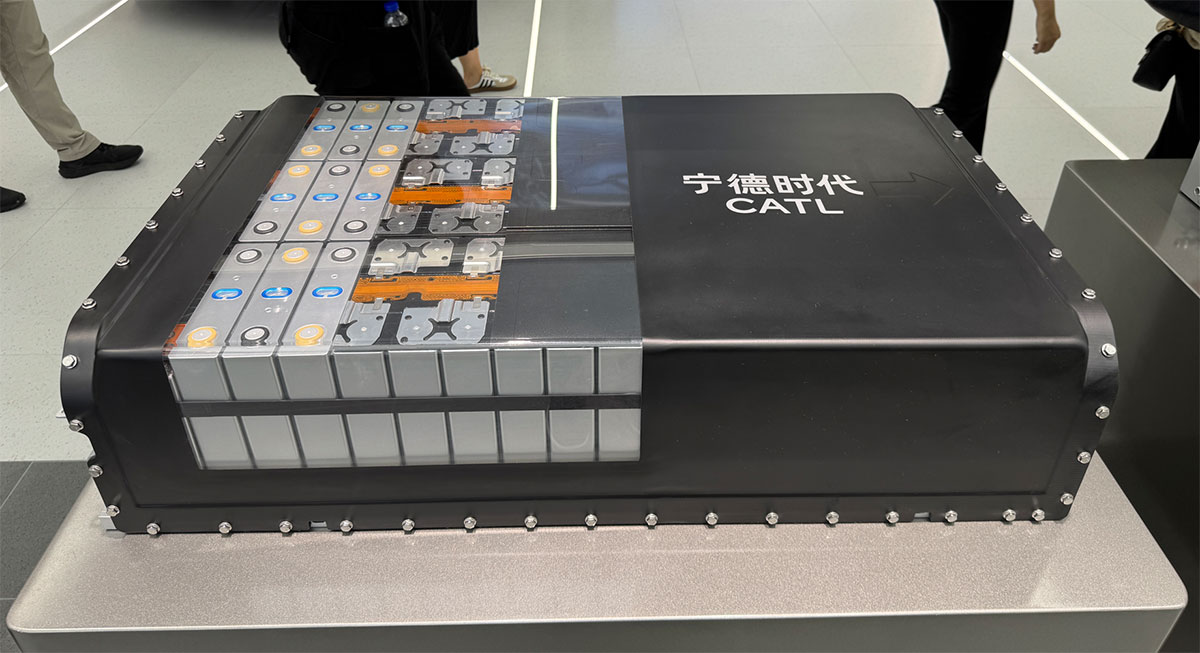Xiaomi EV, Leapmotor to launch EREVs with huge 80-kWh battery packs, report says
CATL is set to launch its new 8-series high-nickel batteries next year, which will be used in EREV models from leading EV startups.

- CATL is set to launch its new 8-series high-nickel batteries next year, which will be used in EREV models from leading EV startups.
- This year, some EREV models have already begun incorporating CATL Freevoy batteries with capacities exceeding 60 kWh.
Several Chinese electric vehicle (EV) makers, including Xiao EV and Leapmotor (HKG: 9863), are reportedly set to launch extended-range electric vehicle (EREV) models equipped with massive 80-kWh battery packs, further blurring the lines between pure electric and hybrid cars.
Battery giant CATL (HKG: 3750) will launch its new 8-series high-nickel batteries next year for use in extended-range electric vehicles (EREVs) from leading EV startups, local media outlet 36kr reported yesterday.
This year, some EREVs feature battery packs exceeding 60 kWh capacity. By next year, plug-in hybrid electric vehicles (PHEVs), including EREVs, will reach around 80-kWh battery capacity, the report said.
This means that by then, the battery pack capacity of these hybrid models will be comparable to many large pure-electric vehicles. Tesla (NASDAQ: TSLA) launched its six-seat SUV Model Y L in China last month, equipped with an 82.0 kWh battery pack, while Nio Inc's (NYSE: NIO) sub-brand Onvo's large SUV L90 features an 85-kWh battery pack.
In August, the average battery pack capacity for China's PHEVs was 27.7 kWh, according to data compiled by CnEVPost from the China Automotive Battery Innovation Alliance (CABIA).
At least four hybrid models will feature 80-kWh battery packs, including Xiao EV's upcoming EREV and Leapmotor's D-series vehicles, the report indicated.
Leapmotor announced last week that its new flagship model, the D19, will make its global debut on October 16.
Additionally, GWM (HKG: 2333) will launch a PHEV model with an 80-kWh battery pack next year, 36kr said.
These high-capacity hybrid vehicle battery packs will be 8-series high-nickel batteries, a type of ternary lithium battery, the report noted.
While not all vehicles will adopt CATL's 8-series high-nickel batteries, the competition among hybrid models for battery capacity and range has allowed leading battery manufacturers to find applications for high-nickel technology, the report stated.
In these batteries, the ratio of nickel, cobalt, and manganese in the cathode material is about 8:1:1, earning them the designation of 8-series high-nickel batteries.
Several years ago, 8-series high-nickel batteries were installed in dozens of models from GAC Aion, Nio, Xpeng (NYSE: XPEV), and others.
However, at the time, this battery technology was newly introduced and thermal management techniques were not yet mature, leading to frequent cases of thermal runaway in 8-series high-nickel batteries, the report noted.
As hybrid vehicles begin adopting increasingly larger battery packs, the 8-series high-nickel battery has gained an opportunity to re-enter the market, the report stated.
While the 8-series high-nickel solution offers only modest gains in system energy density compared to medium-nickel options, it remains worth exploring for vehicle chassis already pushed to their limits, 36kr cited sources as saying.
CATL launched its Freevoy Super Hybrid Battery in October 2024, claiming it delivers over 400 kilometers of range for hybrid models while supporting 4C fast charging.
This year, brands including IM Motors and GAC Group's Hyptec sub-brand have launched models equipped with Freevoy batteries. These batteries, with capacities around 60 kWh, deliver up to 450 kilometers of CLTC range.
Xpeng announced on September 15 that it will unveil the extended-range version of its X9 MPV (multi-purpose vehicle) in October, featuring 450 kilometers of CLTC range.
On September 10, the extended-range G7 SUV entered a regulatory filing catalog, with Xpeng subsequently announcing the G7 EREV will be launched in the first quarter of 2026.
The G7 EREV will utilize an 800-volt high-voltage platform architecture and a large battery supporting 5C ultra-fast charging, delivering up to 430 kilometers of range, Xpeng said.
Xpeng initially selected CATL as its primary battery supplier but switched to other battery manufacturers in 2022.
Disclaimer: The views in this article are from the original Creator and do not represent the views or position of Hawk Insight. The content of the article is for reference, communication and learning only, and does not constitute investment advice. If it involves copyright issues, please contact us for deletion.